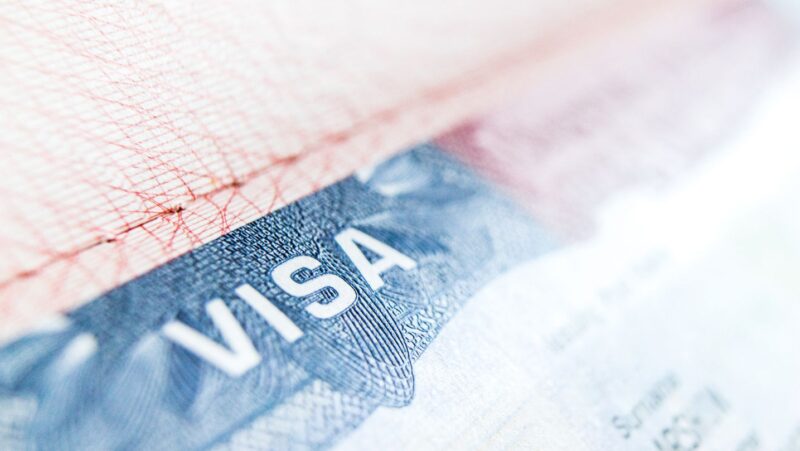
When it comes to crypto gambling, one question reigns supreme: Where can you actually play without breaking the law? With blockchain technology and digital currencies on the rise, more people are gravitating toward crypto casinos. And why not? They’re fast, anonymous, and often loaded with bonuses. But before you start spinning that Bitcoin roulette wheel, it’s essential to know where crypto gambling is legal—or at least tolerated.
This article provides a country-by-country breakdown of the most crypto-friendly casino markets, helping you understand where you can (and can’t) place that crypto bet of yours.
What Is a Crypto-Friendly Casino Market?
Simply put, a friendly crypto casino market is a region where laws around cryptocurrencies and gambling either allow or turn a blind eye to their coexistence. These markets are often characterized by permissive cryptocurrency regulations and flexible gambling laws.
These “friendly” markets make it easier for players to wager using Bitcoin, Ethereum, or other cryptocurrencies, providing a safe and legal gambling environment (sometimes with a side of tax benefits). But the rules can vary dramatically by country.
Now, let’s explore where crypto enthusiasts are most welcome!
1. The United Kingdom
The United Kingdom stands as a world leader in both online gambling and cryptocurrency adoption. All types of gambling activities—from online poker to sports betting—are fully regulated.
“While crypto gambling is legal in the UK, casinos must hold a license from the UK Gambling Commission.” Whether players are paying in fiat currency or Bitcoin, compliance with anti-money laundering measures is non-negotiable. However, VPNs are common among UK players when exploring unlicensed crypto casinos, showing that the system isn’t foolproof.
Why it’s crypto-friendly:
- Recognizes and regulates cryptocurrencies.
- Established infrastructure for online gambling.
- Strict but clear regulations governing gambling operators.
Takeaway: If you enjoy gambling in a well-regulated environment with top-notch player protections, the UK is an excellent spot for crypto gambling (as long as the platform is licensed).
2. Australia
Australia is a bit of a mixed bag when it comes to crypto casinos. Cryptocurrencies are legal nationwide, but gambling is regulated at the federal level. For instance, the Interactive Gambling Act (IGA) bans casino games but permits online sports betting (source: Aussie Casinos website). There’s also a push to outlaw cryptocurrency for gambling purposes altogether, spurred by concerns about money laundering.
While players often use VPNs to bypass restrictions, recent regulatory trends suggest Australia could become less favorable for crypto casino enthusiasts in the future.
Why it’s crypto-friendly (for now):
- Legal cryptocurrency usage.
- Significant loopholes allowing access to offshore platforms.
- High adoption of digital assets among citizens.
Takeaway: The clock might be ticking for Aussies who favor crypto gambling. Make the most of it while you still can.
3. Canada
Canada takes a hands-off approach to online gambling, especially concerning crypto. Unlike some countries, Canada’s federal government doesn’t prohibit crypto transactions or using offshore gambling sites. Players can choose between locally licensed casinos or unregulated international platforms.

Why it’s crypto-friendly:
- Cryptocurrencies are fully legal.
- Offshore platforms are accessible without penalties.
- Provincial regulations are flexible.
Takeaway: Canada offers plenty of opportunities for crypto gambling, especially for those comfortable with offshore options.
4. Curaçao
Curaçao might be geographically tiny, but it’s an absolute powerhouse in the world of crypto gambling. Most crypto casinos hold licenses from Curaçao eGaming, a regulatory body known for its flexibility. While its licensing process doesn’t match the rigor of the UK Gambling Commission, it remains one of the most cost-effective and crypto-friendly options.
This Caribbean island attracts platforms that want to cater to an international audience without dealing with excessive red tape. However, don’t expect strong consumer protections—players are primarily responsible for vetting platforms.
Why it’s crypto-friendly:
- Easy gambling license infrastructure.
- Low tax rates for registered operators.
- Global reach for licensed crypto casinos.
Takeaway: Curaçao is the Wild West of crypto gambling. It’s easy to find opportunities, but tread carefully before parting with your Bitcoin.
5. The United States
The United States is a legal patchwork quilt for gamblers. Crypto casinos are neither universally recognized nor banned, and online gambling regulations vary from state to state. While you can legally gamble online in places like New Jersey and Michigan, Texas, and Utah take a more restrictive stance.
“Since there are no overarching federal crypto gambling laws, many players access offshore casinos using Bitcoin or Ethereum.” However, enforcement varies, and using certain sites might operate in a legal gray area.
Why it’s crypto-(somewhat)-friendly:
- Cryptos are mostly legal, making transactions possible.
- Some states actively support online gambling markets.
- Offshore crypto casinos remain accessible (with some risks).
Takeaway: U.S.-based players should tread carefully in this fragmented legal landscape. Always check both your state laws and the casino’s terms and conditions.
6. El Salvador
El Salvador is the first country in the world to adopt Bitcoin as a legal tender (yes, you can buy coffee with BTC here). This bold move also means crypto gambling is entirely above board. Local casinos accept Bitcoin deposits without issue, and gamblers can legally play on international platforms too.
Why it’s crypto-friendly:
- The first nation to legalize Bitcoin as a currency.
- Seamless crypto transaction capabilities within and beyond its borders.
- Proactive crypto-positive government policies.
Takeaway: El Salvador is a crypto gambler’s utopia. No gray areas here—just pure BTC action.
Why Some Countries Restrict Crypto Casinos
While the countries we’ve listed are crypto-friendly, many others don’t welcome Bitcoin gambling with open arms. For example, China, Indonesia, and Nigeria have all implemented bans on cryptocurrencies or online gambling. The reasons range from currency control to concerns about addiction and fraud.
Here’s why some countries are more restrictive:
- Cryptos undermine local financial regulations.
- Tax evasion risks are higher with anonymous transactions.
- Online gambling magnifies concerns regarding addiction among citizens.
Even in restrictive markets, players often find workarounds like VPNs—which isn’t legal advice, by the way!
How Crypto Gambling Laws Are Shaping the Future
The global shift toward crypto is unmistakable, and the crypto gambling industry is growing rapidly, projected to hit $65.7 billion by 2027. License frameworks in jurisdictions like Curaçao allow casinos to thrive internationally, putting pressure on stricter markets to update their regulations.
If anything is clear, it’s this: Governments will need to decide whether to banish or embrace crypto gambling soon.
Ready to Explore Crypto Casinos?
Before choosing where to gamble, understanding the rules in your region is essential. Countries like Canada, the UK, and El Salvador offer favorable environments, while others present challenges.

Regardless of where you are, always choose reputable casinos with licenses and player protection measures to ensure a safe and enjoyable experience.
Do your homework, bet responsibly, and may the digital odds be forever in your favor.


